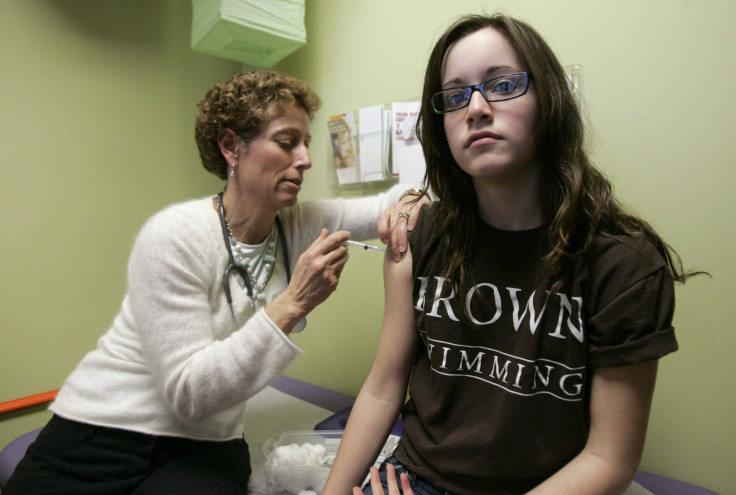HPV Vaccine Rates Not Influenced By Mothers' Knowledge Of Risks, Endangering Daughters

Black women are twice as likely as white women to be diagnosed with cervical cancer, which is usually caused by the very common human papilloma virus (HPV). The good news? Available HPV vaccines can reduce cervical cancer rates dramatically, but only when used. Surprisingly, a new study of HPV vaccination rates among predominantly African American neighborhoods finds even knowledgeable women were not getting their daughters (or themselves) vaccinated. “Although knowledge is often assumed to be key to increasing vaccination rates, it may be unwise to place so much promise in knowledge,” said Dr. Jessica Fishman, University of Pennsylvania’s Perelman School of Medicine, and the study's lead author.
About the Vaccine
HPV is the most common sexually transmitted infection in the United States, and nearly all sexually active men and women will become infected at some point in their lives. Most people never show symptoms and so never learn that they have HPV, and as a result they unknowingly infect a partner. Since national programs first recommended the HPV vaccine in 2006, HPV infection rates have dropped 56 percent among teenage girls — an impressive result considering how few girls have been inoculated. Despite this very real benefit, vaccination rates remain low in the U.S. to this day.
A team of researchers enrolled participants from low-income, predominantly African-American neighborhoods in a study intended to learn whether vaccination rates are related to knowledge about HPV. The researchers focused their study on black women in particular because of their higher rates of cervical cancer; plus, compared to other women, they are up to three times more likely to die of this form of cancer. Participants (211 teens and 149 parents) filled out questionnaires to measure their knowledge of HPV, vaccination, and other variables. After that, the researchers tracked the teens for one year and then analyzed whether knowledge was linked to or predictive of getting vaccinated against HPV.
On average, parents and teens answered slightly less than half of the questions correctly, with five percent of parents and 10 percent of teens unable to answer any of the items correctly. Within one year, 20 of 149 (13.4 percent) of the parents’ daughters received an HPV vaccination and 32 of 211 (15.2 percent) of the teens did so. Surprisingly, knowledge was not associated with or predictive of this vaccination — in other words, those who got vaccinated did not necessarily have more knowledge than those who did not.
The researchers warn this is only a small study and cannot be considered conclusive, and they also suggest future studies should examine which factors predict people will get vaccinated so that public health policies can address those issues.
One other issue must be addressed when discussing HPV: There have been highly publicized stories of serious side effects from Gardasil, one of the approved vaccinations. In clinical trials involving 18,083 people, potential side effects occurred at similar rates whether patients were given a placebo or Gardasil, the Food and Drug Administration reports.
Of 29,323 people involved in various trials, 258 reported a serious systemic adverse reaction and of the reported serious systemic adverse reactions 0.04 percent were judged to be vaccine-related by the investigators. The FDA continues to monitor vaccination side effects. In Australia, where more people get the HPV vaccine, genital warts in both young women and men decreased dramatically, and cases of precancers in the cervix have also gone down since introduction of the vaccine.
Source: Fishman J, Taylor L, Kooker P, Frank I. Parent and Adolescent Knowledge of HPV and Subsequent Vaccination. Pediatrics. 2014.
Published by Medicaldaily.com



























